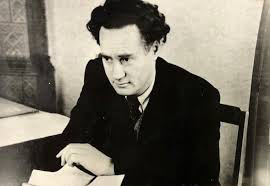Liviu Deleanu
Company:
Art
Deleanu's poetry evolved from the modernism ofhis early days to a more tra- ditional style of classical poetry in his later years. Its motives, concepts and expressive works of the period between the first and second world wars, are modern, fitting per- fectly in the direction of Romanian poetry of those years. He used modernist tech- niques and stylistic devices of poetry including free verse. In the 1950s and 1960s, however, Deleanu's literary profile took anew and different form. In his poetry collec- tions, which included literaryworks of absolute maturity, he cleaved to the traditional in his classic expression. The world of his creations of the postwar period is based on a certain themes: love, nature, the process of creation, the fate of the creator, and age over time- the motives which in the context of the Bessarabian poetry of the postwar period, clearly depict the image of a lyric poet of genuine sensitivity. His poetry indi- cates a special interest in formal and expressive perfection.
During the Second World War, he lived in Moscow, translating Russian po- etry into Moldovan. Some of the poets he translated were Ivan Krylov, Alexander Pushkin, Mikhail Lermontov, Nikolay Nekrasov, Sergei Yesenin, Sergey Mikhalkov, Korney Chukovsky, Aleksandr Tvardovsky as well as Agniya Barto. He wrote Balada lui Kotovschii (The Ballad of Kotovsky), Ballada uri and several other works. From 1943, he also worked as literary editor of the ensemble Doina.
